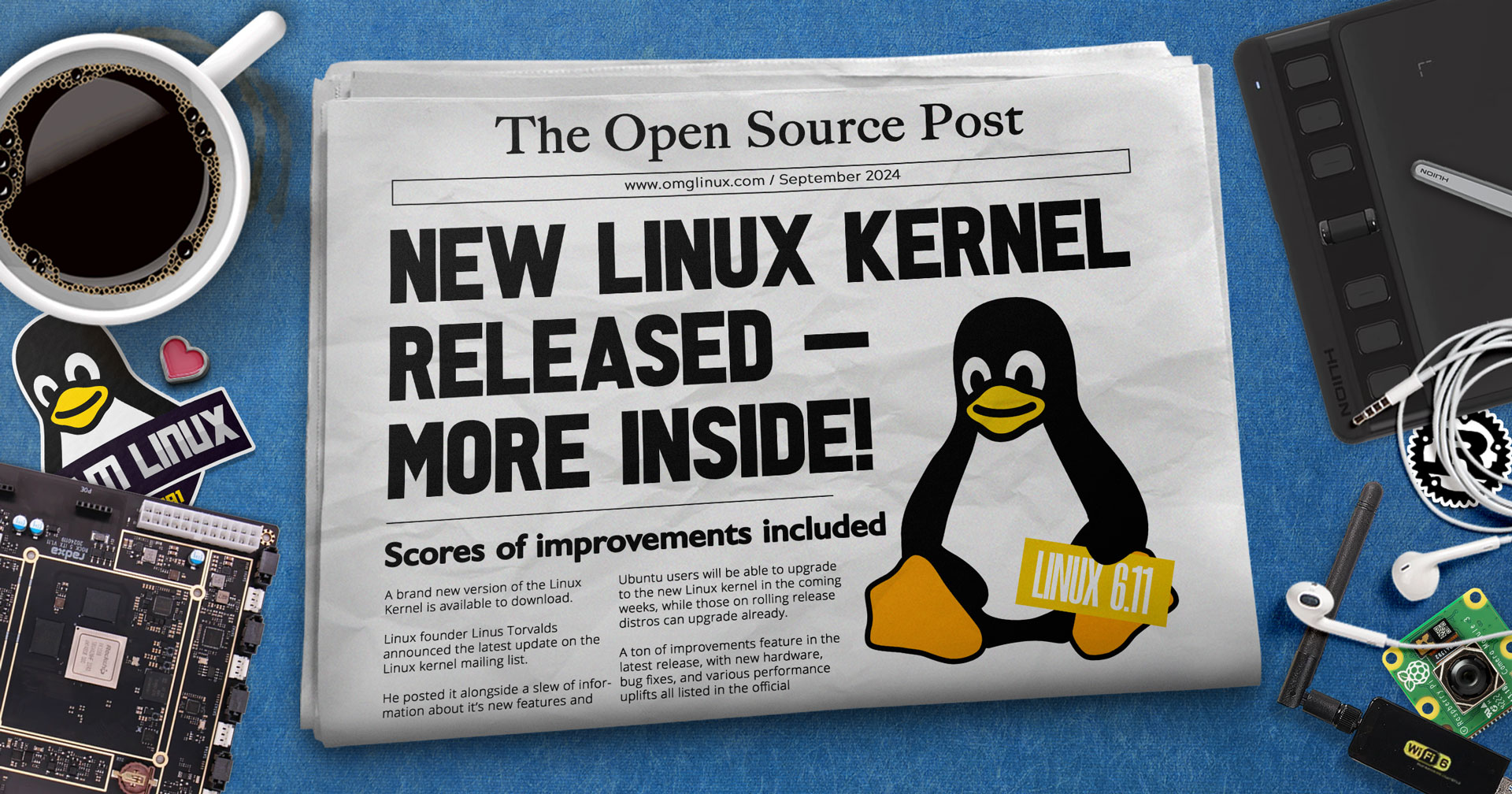After only few months from the Linux Kernel 6.10, Linus Torvalds announced today the release and general availability of Linux kernel 6.11, the latest stable version of the Linux kernel (available on kernel.org) that introduces several new features and improvements. This update arrives a few days before the Linux Kernel Maintainer Summit takes place in Vienna, Austria.
Note that also the 6.10 version remain classified temporally as a stable branch, but this release will be a short-lived branch, supported for only a couple of months, before being succeeded by Linux kernel 6.11.

Linux kernel 6.11 will be included in Ubuntu 24.10 and Ubuntu 24.04.2 LTS.
This release includes:
- x86 enhancements: for x86 systems, the integration of genetrandom() into vDSO (virtual dynamic shared object) allows more efficient access to randomness, especially under memory pressure.
- AMD improvements: for AMD adds Core Performance Boost control to the AMD P-State driver, allowing to opt in/out of turbo and boost frequency ranges, and control performance boost for each individual core.
- ARM enhancements: for ARM64 (AArch64) systems, virtual CPU hotplug support has been added for ACPI (Advanced Configuration and Power Interface) systems.
- RISC-V improvements: for the RISC-V architecture, NUMA (Non-Uniform Memory Access) support has been added to ACPI-based systems, improving memory access performance in multi-processor configurations. Furthermore, RISC-V now benefits from memory hotplug support and STACKLEAK support, adding another layer of security by preventing sensitive data from lingering in kernel memory.
- Qualcomm platform support: a new driver subsystem, which enables native support for Bluetooth and WLAN chips on Qualcomm platforms. This update will significantly enhance the out-of-the-box experience for users with Qualcomm hardware, eliminating the need for external drivers or complicated setups.
- Security updates: introduction of a dedicated bucket slab allocator designed to protect against heap-spraying attacks. And also the initial support for AMD’s SEV-SNP (Secure Encrypted Virtualization – Secure Nested Paging).
- Performance updates: rewrite of the disk accounting system for the bcachefs file system. This update improves how the kernel handles accounting information, making the file system faster and more efficient.
- ext4 improvements: performance boost of ~20% for fast devices using async direct I/O.
- Btrfs improvements: introduction of new
rescue=mount options and background block group reclaim logic will make recovery and resource management more efficient. Also btrfs block-group reclaim better able to avoid unavailable space issues. - Rust integration: Linux 6.11 introduces support for block drivers written in Rust, as well as Rust abstractions for loading firmware. This paves the way for more secure and memory-safe drivers, leveraging Rust’s safety guarantees.
- Virtualization support: KVM (Kernel-based Virtual Machine) sees several updates. LoongArch architecture now has enhanced KVM support, including ParaVirt steal time and improved VM migration capabilities. Additionally, KVM halt poll shrinking is enabled by default, reducing resource consumption when VMs are idle.
Linux kernel 6.11 is available for download from Linus Torvalds’ git tree or the kernel.org website.
See also: Linux kernel version history











